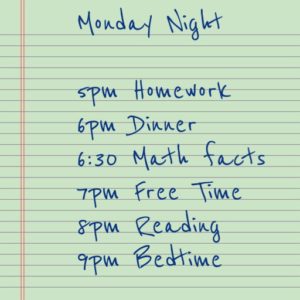
Kids with learning or attention issues can have a tough time with homework, no matter how hard they try. As a parent, you know the importance of completing homework and developing strong study skills. But it can be hard to know how to be supportive without doing too much. Students should get the learning benefit from the assignment.
What does Lindamood-Bell know about homework?
In our learning center, we apply our expertise about learning and cognition to supporting students after school. During Homework Matters sessions, we help students complete their own homework to the best of their abilities. And in Academic Prep, we help with writing, test-taking, organization skills, and more. We are happy to pass along a few tips that reflect our unique approach. Let’s help your child with homework!
Why homework can be hard
Students who struggle with school may have a weakness that is affecting learning. Students who are poor decoders and spellers, or slow readers, may have weak symbol imagery—the ability to visualize letters in words; students with poor comprehension, critical thinking, writing or memory may have weak concept imagery—the ability to create an imagined gestalt (whole) from language. These difficulties are not only frustrating for a student, but prevent them from accessing school curriculum. Learn more about how we help students here.
The imagery-language connection is key to good thinking and communication, and can really help with homework. Whether or not a student has poor comprehension, parents can use language that creates imagery. Asking a question like “What are you picturing for colonial?” can open the door to a great homework session.
Your role in homework
Most experts agree that parents should provide the basics for homework: the right environment and needed supplies, the time and opportunity, and an adult resource for answering questions. Of course, some students need additional help. And you may want to take a more active role facilitating their work. Checking out your child’s understanding of a given assignment is a good place to start. Have your child read directions aloud and ask questions that prompt imagery. For example, if the assignment is, “Read chapter 2, and answer questions 1-5” ask, “How are you picturing yourself ‘answering questions’?” You’ll be making sure they are visualizing that they will be writing or typing answers.
Reading time
Most students have to read as part of their homework load. This is a great opportunity to gauge comprehension and keep your child engaged with the text if that is an issue. Ask questions like, “How did you see that happening?” or “What do you picture happening next?” You’ll be able to see if they are understanding the language they are reading.
Spend time on vocabulary
If you are helping a student who is having difficulty understanding material, at any grade level, giving some extra attention to vocabulary can be helpful. Before diving into new material, check on your child’s understanding of key terms, using language that stimulates imagery. For example, during a lesson on photosynthesis, ask questions like, “What are you picturing for what the sunlight is doing?” and, “What do you see happening?”
To commit new terms to memory, flash cards are a great tool for practice. Have your child write the word on one side of the card. The other side can include the definition, a hand drawn picture, and a brief sentence using the word in context. During practice, use language that prompts her to draw on her images. Instead of, “Do you remember the steps of photosynthesis?” ask, “What are you picturing for photosynthesis?” and “What do you see happening next?” If a term is unstable, flip over the card for her definition and drawing to discuss. Create piles for her “fast,” “medium,” and “slow” cards to help focus practice sessions.
Planning and organization
Like adults, kids enjoy knowing there is an end in sight, and what they have to look forward to. It’s no surprise that struggling students will do whatever they can to avoid homework. A simple schedule can help. Work together to write down what needs to happen. Include ongoing skill-building activities like math facts so your student can progress, even when it gets busy. Don’t forget free time!
Example:

Check for understanding ahead of time. You can ask questions that prompt your student to visualize—the key to good comprehension. For example, on the ride home ask, “What do you picture us doing when we get home?”
It’s also important to plan for a distraction-free homework zone with all the supplies your child needs. Eliminate the “stops and starts” and you’ll maximize time spent on what matters. Check out this video for tips.
Imagine a Better School Year: Free Parent Workshop
Ready to learn more? Attend a free parent workshop.
Our 30-minute parent workshop will show you ways to use the imagery-language foundation to make homework easier:
- Learn how to check if your child really understands something
- Learn to help your child study for tests
- Learn a simple method to assist with writing
This workshop includes an academic planner to help your child stay organized.
Events will take place at all Lindamood-Bell Learning Centers during the week of September 18th, 2017.
Learn More

















